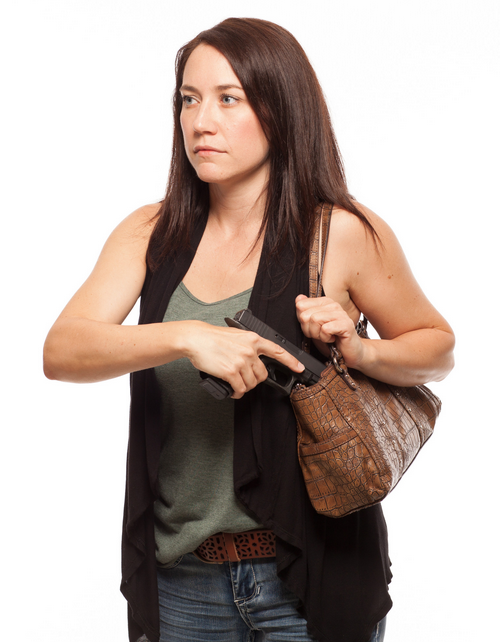More and more people are becoming first-time gun owners across the country. So much so that the nationwide ammunition shortage continues to rage on across the country.
If you’re a first-time gun owner, there’s a lot you need to learn, aside from how to find ammo. From how to use your firearm to proper storage methods, gun ownership is a responsibility you need to take seriously.
One of the most important things to understand is how concealed carry states work, and why you might want to consider getting a concealed carry license.
Different states handle the matter in different ways, so it’s important to understand basic concealed carry law before heading out with a handgun tucked away.
Read on below to learn all about concealed carry and how it differs in each state.
What Is Concealed Carry?
So what does concealed carry actually mean? It’s the process of carrying a small handgun on your person, while in public. Yet the handgun remains concealed at all times.
If done properly, no one would be aware that you are carrying a firearm.
The main reason to carry a firearm in this manner is to be prepared at all times. If someone were to attack you or someone else, you would be ready to handle the situation, rather than become another victim.
While there are some limitations regarding how, when, and where you can carry your concealed handgun, in general, it allows you to carry on with your daily activities in public places with a self-defense weapon ready at all times.
How to Get a Concealed Carry Permit
In order to practice concealed carry, you’ll need to get a concealed carry permit, sometimes called a concealed handgun license (CHL).
The process is pretty standard across the country. You’ll sign up to take a CHL course, pay a fee, and sit through eight hours of class time. Aside from lectures regarding best practices, safety, and local laws, you’ll get hands-on shooting time at a supervised shooting range.
Whether you are a firearms expert or novice, the course is a requirement to get your permit to carry. However, these requirements are usually waived for those currently serving, or who have served in law enforcement or the military in the past.
Upon completion of the course, you will receive a certificate. You can then bring this certificate to the government branch that handles CHLs in your state.
For example, in Florida, you would visit your countys’ local tax collectors office. In Michigan, you would visit your local county clerk.
In most places, you’ll pay a modest fee, submit a paper application or digital application form, verify your identity, take a photo, and scan a fingerprint.
Types of Concealed Carry States
State governments handle concealed carry, rather than the federal government. And each state does so a little differently. Here are the different types of state positions towards concealed carry.
Constitutional-Carry States
A handful of states consider concealed carry to be constitutional carry. Under this rule, anyone that is legally able to purchase and possess a firearm may carry it on their person without acquiring a permit to do so.
So in constitutional carry states, there are no course requirements, no fees to pay, and no application to submit in order to carry a concealed handgun, so long as you are legally allowed to possess one.
Shall Issue States
Shall-issue states are the most common form of concealed carry state. Shall-issue states require individuals to have a permit or license in order to carry a concealed handgun.
Anyone who is legally allowed to purchase and possess a handgun is allowed to obtain a concealed carry license. And they can carry their handgun, with a license, without having to demonstrate “good cause” for carrying the firearm.
A few states only issue permits to residents, such as Michigan and Colorado. But most shall-issue states issue permits to both residents and nonresidents.
May Issue States
May issue states are those that require a permit in order to carry a concealed handgun but retain discretion as to whom they issue permits. This includes states like Connecticut and California.
Individuals applying for a license must demonstrate “good cause” for needing to carry a handgun. Failure to do so can result in a denied permit, even if they can legally possess and purchase a handgun.
And some states don’t allow individuals to carry handguns at all. This includes Hawaii, Maryland, Massachusetts, New Jersey, and New York. 12 counties in California also abide by this law.
Concealed Carry State Reciprocity
Most states engage in concealed carry reciprocity. This means that you can acquire a concealed carry permit in your home state, and it would be recognized and valid in other states that you are traveling to, or other states you reside in or work in.
In general, shall-issue states and may-issue states honor the permit of other shall-issue and may-issue states. Most of these states that do not reciprocate are those that don’t allow private citizens to carry handguns at all, like New York and Hawaii.
Some states do not impose any restrictions on the permit issued by other states. Yet some states honor the permits, yet impose certain limitations on out-of-state permits.
Limitations exist in the form of other personal defense weapons. For example, with a concealed carry license in Florida, holders can carry either a handgun, stun gun, billy club, or knife.
But states that honor Florida permits might only allow holders to carry a handgun and none of the extra weapons.
Additionally, states often impose limitations on non-resident permits. For example, the state of Florida allows both residents and non-residents to acquire a Florida concealed carry permit.
But the state of Colorado only honors resident permits from Florida, rather than non-resident permits from Florida. So if you live in New York, cannot get a resident permit in your state, and get a nonresident permit in Florida, it won’t be valid in Colorado.
But it would be valid in states that don’t impose limitations, like Montana or Idaho.
What About Open Carry?
Open carry of a handgun or long gun is the act of carrying a handgun (holstered, not brandished) openly. So rather than under a shirt, it’s holstered outside on your waist belt, for example.
Most states do not allow open carry, but some, like Texas, do. This means that anyone who is legally allowed to purchase and possess a firearm can carry it on their person in most public places.
Of course, there are some limitations, such as in government buildings, schools, hospitals, and so forth. And while Texas may allow for open carry in a vehicle, Ohio allows for open carry except in vehicles, where firearms need to be stored away from passengers, unloaded.
Many states have exemptions regarding open carry. For example, in Florida, you may openly carry a handgun if you are legally hunting, fishing, or camping, or returning from these activities.
Additional Concealed Carry Laws and Restrictions
Each state can set additional rules and regulations regarding concealed carry permits and usage.
Some states may limit the types of ammunition that can be loaded into concealed handguns. For example, in Michigan, armor-piercing ammunition is not allowed.
Some states will place limitations on magazine capacities in concealed handguns. That means that extended magazines wouldn’t be allowed. But other states, like Michigan, do not place limitations on handgun magazine size.
In most states, you can continue to carry your concealed handgun (with a permit) while driving a vehicle, or as a passenger. Without a permit, however, handguns would need to be unloaded, cased, and stored away from all passengers, such as in the trunk of the vehicle.
Concealed carry handguns are normally allowed in restaurants, including those that serve alcohol. However, concealed handguns are not allowed in bars that primarily serve alcohol.
Certain states do not allow any type of carrying inside of national or state parks, national or state forest, or wildlife management areas, while others, like Florida and Michigan, do allow it.
Laws Regarding Employment
Another area where states disagree is regarding places of employment. In certain states, employers can take action against employees who store legal firearms and ammunition in their car, while parked in an employer parking lot.
In Michigan, there are no state laws regarding this, and it’s up to employers if they would prohibit this in company parking lots. In states like Florida, neither private nor public employers are allowed to prohibit the legal storage of firearms and ammunition inside an employee’s vehicle, while parked in an employee parking lot.
Employers are also not allowed to inquire about the presence of firearms in an employee’s vehicle. Nor can they take any action or place any conditions on the employee as a result of the legal storage of firearms in their vehicle.
Legally Carrying Your Firearm
For most Americans, concealed carry is a right, and it’s available to all individuals who are legally allowed to purchase and possess firearms.
This gives you the opportunity to protect yourself in public, should you ever become a victim. However, there are plenty of rules and limitations placed on concealed carry permit holders.
It pays to do your research regarding concealed carry states, what your home state policy is, as well as any states you are planning on traveling through.
Looking for more information like this? Head over to our blog now to keep reading.










